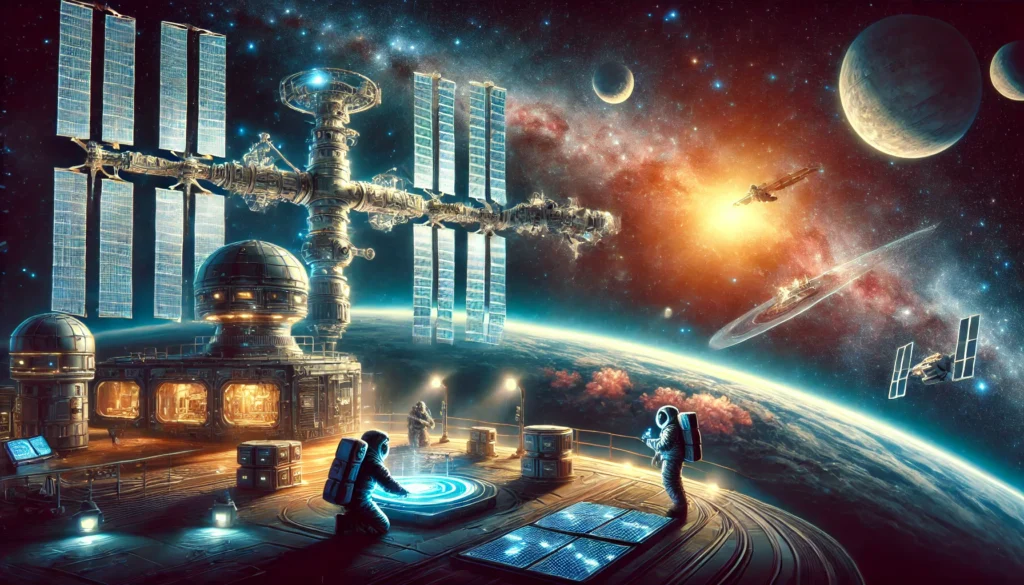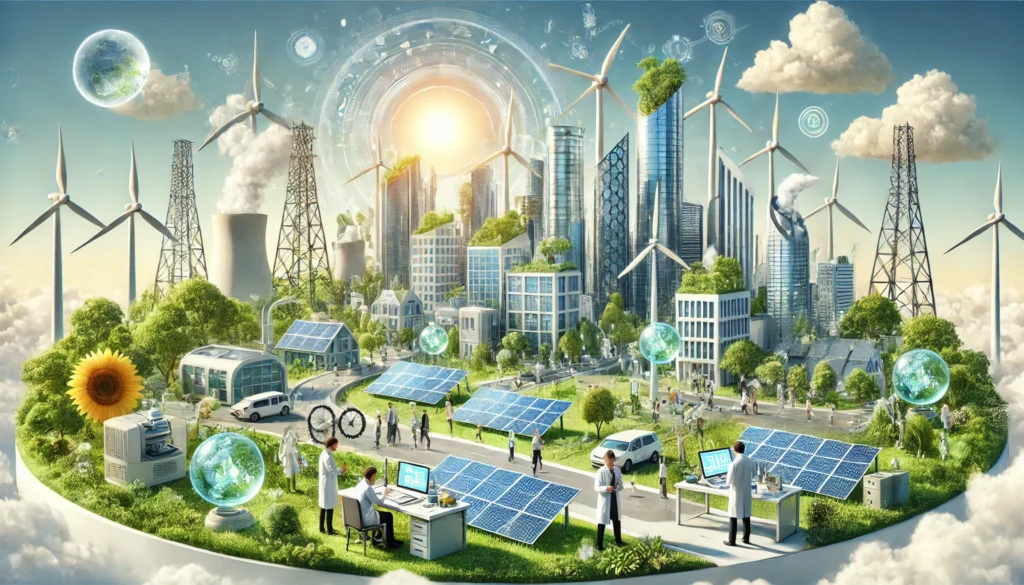What Is Science ?
Science is a systematic study of the natural world through observation, experimentation and logic. The purpose is to detect facts, understand the laws of nature and develop principles to explain how things work. Science depends on the scientific method, including observation, to create hypothesis, conduct experiments, analyze the results and conclude.
Wonders of Science: Utilization of the mysteries of the universe
Science is the basis of human progress, the way we understand and interact with the world. It is a systematic discovery of knowledge that depends on observation, experimentation and logic. Science can be defined as an organized study of physical and natural world structure and behavior through empirical evidence and theoretical explanation. From the smallest nuclear particles to the enormous of the universe, science provides the insight that improves technological progress and improves the quality of life. In this blog post we will find out the importance of science, its different branches, its role in shaping modern civilization and the ability to shape the future of humanity.

The importance of science
Science is necessary because it helps us to make an understanding of the world. This allows us to answer basic questions about nature, human body, universe and beyond. By using scientific methods, researchers highlight the truths that help us solve problems, innovate and create new techniques. Science has groundbreaking findings such as antibiotics, electricity, space exploration, artificial intelligence and climate science. It allows society to move forward by providing solutions to global challenges, including health crises, food production and environmental stability.
In addition, science increases our everyday lives in the ways we cannot always recognize. Modern suitability We depend on the tribe from scientific findings and technological advances, from clean drinking water to transport systems. Scientific research also plays an important role in disaster preparations and reaction, which helps us reduce the effect of natural disasters such as earthquakes, storms and epidemic.
History of science
In the core, science is the discovery of understanding the natural world. Since the morning of Homo Sepias, survival rests on recognizing patterns in nature. The cyclical dance of the sun and moon, the weather forecast – this was not only heavenly curiosity, but also important markers for early people. The sun’s daily bow fixed the activity, while its slow, annual progress indicated the turn of the season, guiding and later, the agricultural cycles. Failure to pay attention to these rhythms can mean destruction, from hunger to social fall. In this sense, the rudeness of scientific observation is as old as humanity.
Still, science patterns are more than recognition – this is a disciplined discovery of truth. The human mind is good at ordering orders, sometimes no one is present. For example, medieval OB requires, but real science investigations, doubts and empirical verification. Without a hard examination, regularity is only confusion.
Even when laws are distilled in elegant mathematical manifestations, they leave many dissatisfied. What is the reason for serving these laws? Here, scientific discipline deviation. For example, quantum mechanics have left the search for the ground, to relax on the potential model. On the other hand, modern biology thrives with explanation, detects the complex mechanism of molecular interaction and evolutionary changes. The nature of scientific explanation is a battlefield of ideas, which transmits with intellectual tides. For most history, natural philosophers asked for spiritual or divine powers – an attitude that would dismiss modern science, but once played an important role in the formulation of the investigation.
The appeal to higher powers followed certain constraints. Deities and spirits were not seen as whimsical actors but as rational entities governing an ordered universe. This belief fostered scientific breakthroughs. Kepler’s planetary laws, Newton’s absolute space, and even Einstein’s resistance to quantum uncertainty were rooted in theological convictions, not empirical necessity. The guiding assumption was that the cosmos was intelligible because it was crafted by a rational force. As Einstein famously mused, the true wonder is not that humans can observe the universe, but that the universe is comprehensible at all.
Science is then a strict study of the natural system, where there is a nature of skepticism and explained through rational examination. Nevertheless, human opinion is naturally limited. Our senses -strained, touch, hearing hearing – -creating -defines the abolition as we know, but they only occupy a fraction of the complexity of the world. The invention of telescopes, microscope and radiation detectors expanded our sensory access, so we could see what the invisible was once. Scientific progress, in this scene, is bound to units we prepare to expand our understanding of the unknown.
This exploration of science’s history follows its trajectory from primitive observations to the paradigm-shattering discoveries of the 20th century. From the recognition of nature’s fundamental rhythms to the redefinition of reality in modern physics, the journey of science is one of relentless curiosity, ever refining our understanding of existence itself.

The Branches of Science
Science is broadly divided into three main categories: natural sciences, social sciences, and formal sciences.
1. Natural Sciences
Natural sciences focus on information the physical international. This category includes disciplines inclusive of physics, chemistry, and biology.
- Physics
- Chemistry
- Biology
- Earth Science
Social Sciences
- Psychology
- Sociology
- Economics
- Political Science
Formal Sciences
- Mathematics
- Computer Science
- Statistics
The Role of Science in Modern Civilization
Science has been the driving force behind the development of modern civilization. Some of its greatest contributions include:
1. Medical progress
Science has greatly improved the health care system through vaccines, surgical techniques and clinical equipment. Research in diseases such as cancer, Kovid -19 and genetic disorders have saved millions of lives. Gene therapy, personal therapy and the development of dentures highlight the transformational force of medical science in expanding and increasing human lifestyle well.
2. Technology and innovation
The digital revolution driven by scientific progress has changed communication, transport and industry. Smartphone, Internet and artificial intelligence are all scientific research products. Innovation in robotics and automation is re -forming industries, which has increased efficiency and new job opportunities in areas such as machine learning and cyber security.
3. Space probes
Amberries such as NASA and SpaceX have expanded our understanding of the universe. The discovery of Mars, satellite technology and supernatural life is scientific effort. The study of black holes, dark matter and exoplanets challenges our understanding of the universe and one day can lead to an intersteller journey.
4. Environmental sustainability
Climate science has emphasized the effect of global warming and deforestation. Scientific research has led the development of renewable energy sources, such as solar and wind energy to combat environmental decline. Protective efforts driven by scientific findings are to protect biodiversity and reduce the ecological footprint of humanity.
5. Artificial intelligence and automation
The emergence of artificial intelligence (AI) revolutionizes many industries, from health services to financing. AI-operated technologies, such as machine learning and neural networks, increase automation and improve the efficiency of the decision. The moral thoughts around AI, including job shift and privacy considerations, become important areas of discussion.
The Future of Science
When we look at the future, science is important for solving humanity’s biggest challenges. Progress in artificial intelligence, quantum calculation and genetic technology is expected to reopen industries and societies. Space will define the next era of scientific progression, permanent energy solutions and biomedical innovations.
One of the most exciting fields for future scientific research is a quantum computer, which has the ability to bring revolution in computing power, which can enable successful successes, drug detention and complex problems. Nanotechnology and biotechnology promise new opportunities in disease, crop production and prevention of human life.
While science has made incredible advances, moral ideas should be with technological progress. Problems such as data, genetic modification and AI ethics require careful consultations that science comes in favor of all humanity responsibly. The responsible use of scientific findings is crucial to preventing unexpected results and ensuring similar access to technology.
